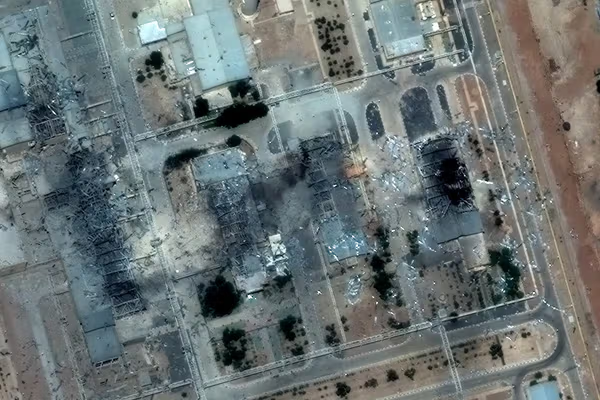The Israeli military first said it had killed Major General Mohammed al-Ghamari in an attack in August which killed the Prime Minister appointed by the Shi'ite group.
The Houthis did confirm his death until Thursday, and the date or details of his assassination were not immediately released.
"Appointed in 2016, al-Ghamari played a central role in building Houthi missile systems and weapons-production infrastructure, trained by Hezbollah and IRGC," the Israeli military said in a statement, referring to Iran's Revolutionary Guards.
"His elimination delivers a severe blow to the Houthi command structure, responsible for hundreds of attacks against Israel during the war."
At the mass funeral, Houthi politburo member Daifallah al-Shami praised the slain leader's role in confronting its enemies.
"Al-Ghamari and his comrades in the various formations of our armed forces played a great role in inflicting a humiliating defeat on America at sea, along with Britain, as well as on the criminal Zionist entity enemy over the course of two years," he said.
UK forces played a supporting role in a US military campaign against the Houthis earlier this year which appeared to make little headway in dislodging it from power.
"They proved to the whole world that God’s promise of victory to his believing servants is true and honest, even if it was in the face of the most modern arsenals of the world: aircraft carriers and strategic American bombers," al-Shami added.
Leadership central
Al-Ghamari, according to Yemen analyst Mohammed al-Basha, "was one of the most senior and influential figures within the group’s leadership."
"As the top military commander, he directed operations that targeted both civilian and military infrastructure across Yemen and neighboring countries. His leadership was central to shaping the Houthis’ strategy."
His assassination marks one of the biggest blows to the hardened fighters since Hussein Badreddin al-Houthi, their founder and brother of the current Houthi leader, was killed by Yemeni government forces in 2004.
The Houthis launched attacks on waterways straddling the war-torn Arabian Peninsula republic beginning in November 2023, in what it called a blockade of Israel in solidarity with Palestine as war raged in Gaza.
Attacks killed eight international mariners and targeted dozens of vessels with no apparent connection to Israel or Western foes.
The group has fired scores of missiles and drones to Israel since the outbreak of the Gaza war, with most intercepted by air defense systems, though there have been some lapses.
One man was killed in a drone attack on Tel Aviv which hit a residential building last year and a missile attack narrowly missed Israel's busiest airport in May.
Israel responded with multiple airstrikes in Yemen, where the Houthis control large amounts of the territory after a civil war erupted in 2014. Local health authorities say the attacks have killed scores of civilians.










